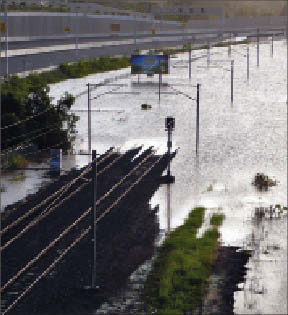In an analysis of the disruption of coal exports from Queensland, research and consulting firm Wood Mackenzie estimates that more than half of Australia’s coal exports are likely to be affected and the impact will be felt strongly in the global coal markets.
Forty-six coal mines either have been flooded or are serviced by rail that has been disrupted, the Edinburgh, U.K.-based firm says, and these mines account for 55% of Australia’s total coal exports.
About 80% of the affected exports are metallurgical coal and 27% are thermal coal. The affected metallurgical coal accounts for about 91% of Australia’s total exports of hard coking coal. And the majority of consumers of the country’s metallurgical coal are steelmakers in Asia.
Wood Mackenzie emphasizes that it remains uncertain what the overall production loss could be. But it calculates that if all 46 mines were shut down for one month, “the export impact” would add up to 14 million tonnes. Of that amount, 7 million tonnes would be hard coking coal, 2 million tonnes would be semi-soft and semi-hard coking coal, 2 million tonnes would be pulverized coal injection coal, and 3 million tonnes would be thermal coal.
As for prices, “it is reasonable to assume that hard coking coal prices could reach between US$200 and US$500 per tonne,” Wood Mackenzie says, given that rainfall intensified on Jan. 11.
In terms of thermal coal, supply disruptions in Colombia, Venezuela, and South Africa, have exacerbated the impact of the Australian floods, it notes.
“In the Atlantic basin spot prices have reached US$130 per tonne delivered into Europe. In the Pacific basin thermal spot prices have already risen sharply to US$140 per tonne at the port of Newcastle and could approach or exceed the US$197 per tonne experienced in 2008.”


Be the first to comment on "Wood Mackenzie estimates damage of Australian floods (January 31, 2011)"